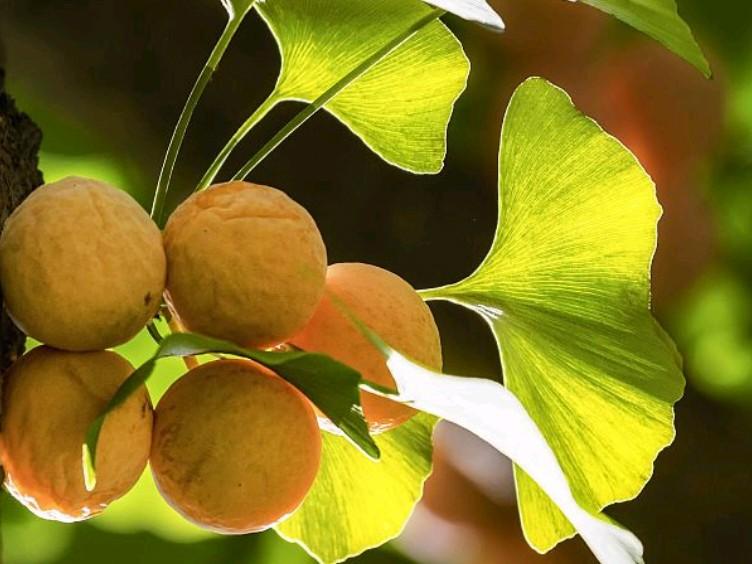What Is the Use of Ginkgo Biloba Dry Extract in Poultry Breeding?
Ginkgo, also known as the white fruit, gongsun tree, duck foot tree, and fan palm, is a perennial deciduous tree in the Ginkgoaceae family of gymnosperms. It is a precious relict tree species unique to China and is known as a “living fossil”. China cultivates the largest number of ginkgo trees in the world, accounting for about 75% of the world's total[1]. The leaves, roots, pollen, flesh, and outer seed coat of ginkgo biloba can be used in medicine, with the leaves being the most important. With the popularization of the concept of green and healthy farming, the development of natural and safe herbal medicine feed additives as an alternative to antibiotics is an inevitable trend in the development of the animal husbandry industry. Ginkgo biloba leaves and extracts have medicinal properties such as anti-tumor, anti-oxidation, antibacterial, regulating blood lipids, and protecting nerves[2], and have gradually been introduced into livestock and poultry production in recent years.
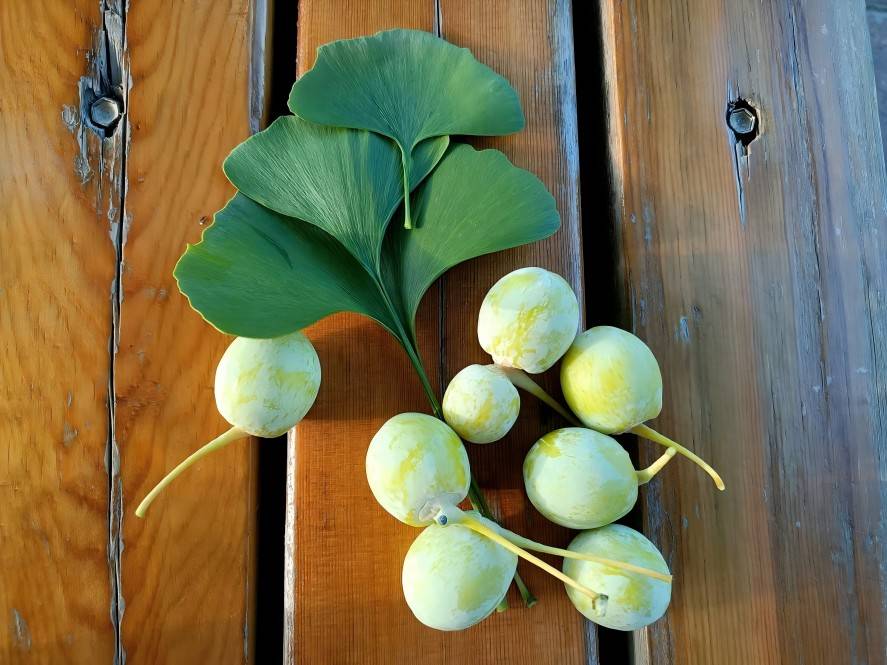
1 Chemical composition
1.1 Flavonoids
Flavonoids are the main active ingredients in ginkgo leaves, accounting for 5.9% of ginkgo leaf extract[3]. They are mainly composed of flavonoid glycosides such as quercetin, kaempferol and isorhamnetin, which are linked to monosaccharides such as glucose by an oxygen glycosidic bond. Ginkgo biloba extract contains more than 40 types of flavonoids, including 32 monomeric flavonoids, 6 dimeric flavonoids and 4 catechins[4]. Flavonoids mainly exhibit free radical scavenging and lipid peroxidation inhibition activities[5], and are the main chemical components of ginkgo biloba that exert a wide range of unique pharmacological activities.
1.2 Terpenoid lactones
Terpene lactones are another major active ingredient in ginkgo biloba, accounting for 0.1% to 0.6% of the total content. So far, a total of eight terpene compounds have been isolated from ginkgo biloba [6], which are divided into ginkgolides and bilobalides. Ginkgolides are diterpenoids, including ginkgolides A, B, C, M, J, etc. Ginkgolides are sesquiterpene lactones. Ginkgolides have strong and specific inhibitory activity on receptors and are currently considered to be the natural receptor antagonists with the most clinical application prospects [7].
1.3 Polysaccharides
Ginkgo biloba polysaccharides are heteropolysaccharides composed of rhamnose, arabinose, mannose and galactose [8]. Ginkgo biloba polysaccharide has various biological activities such as immunomodulation, anti-oxidation and anti-tumor [9].
1.4 Amino acids
Ginkgo biloba contains 17 amino acids, with a total of 92.26 mg/g [10]. Glutamic acid is the most abundant, followed by aspartic acid and leucine. Ginkgo biloba contains eight essential amino acids, accounting for 46.9% of the total amino acids.
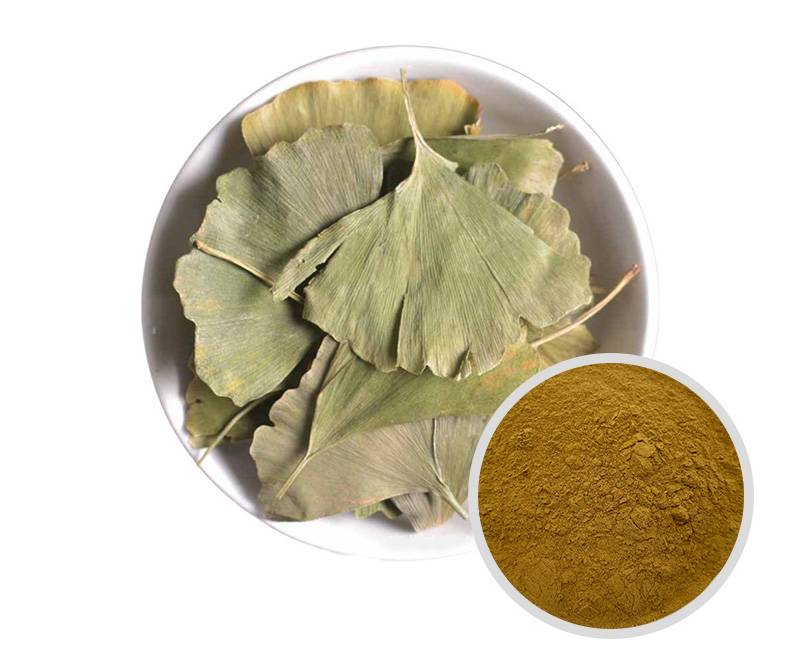
1.5 Vitamins
Ginkgo biloba is high in vitamin E, vitamin B6, vitamin C, niacin and folic acid, with contents of 4.09, 2.90, 81.47, 9.43 and 1.69 mg/g respectively [10].
1.6 Minerals
Ginkgo biloba contains 25 minerals, including copper, zinc, iron and magnesium. The content of copper is 4.448μg/g, zinc is 24.48μg/g, iron is 539.3μg/g and magnesium is 6844μg/g [11].
2. Role in poultry production
2.1. Improve production performance
The terpene lactones contained in ginkgo biloba are natural, highly active platelet-activating factor antagonists that can inhibit platelet-activating factor-induced intestinal mucosal damage. Therefore, they can effectively protect the gastric mucosa, increase the absorption of nutrients by broiler chickens, and improve the growth performance of broilers [12]. Studies have found that natural plants and their extracts can increase the secretion and activity of endogenous enzymes, improve the intestinal microbial flora, and increase the utilization rate of feed nutrients [13]. Lu Yanfeng et al. [14] added 1.0% of privet and ginkgo biloba extract to the basal diet of Northern Jiangsu broiler chickens and found that the weight gain and feed conversion rate of the chickens in the later stage were significantly improved, and the evisceration rate of the chickens also increased significantly. The slaughter rate also tended to increase with the increase in the level of ginkgo biloba extract added.
Zhu Yongyi et al. [15] added 0.2% to 0.4% fermented ginkgo biloba extract to the diet of yellow-breasted broilers, which increased the average daily feed intake and average daily weight gain of yellow-breasted broilers throughout the entire period and significantly reduced the feed conversion ratio. Chen Guiying et al. [16] conducted a similar experiment by adding ginkgo biloba extract to the diet of yellow-breasted broilers and obtained similar results. Li Yan et al. [17] added 0.2% to 1% ginkgo biloba extract to the diet of Arbor Acres broilers (AA broilers), and found that the slaughter performance, feed conversion rate and evisceration rate of the broilers improved linearly with the increase of the added amount. It can be seen that the addition of ginkgo biloba or its extract has a significant growth-promoting effect in the rearing of different types of broilers.
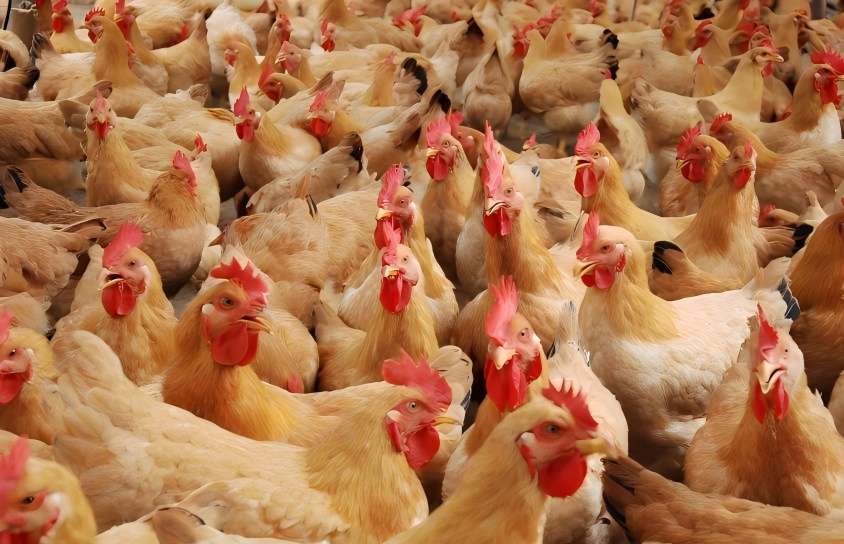
2.2 Improve product quality
Ginkgo biloba flavonoids and ginkgolides can lower blood lipids and cholesterol, protect capillary permeability, and restore the elasticity of arterial blood vessels [18]. Adding ginkgo biloba and its extracts to the feed of laying hens can produce low-cholesterol, green, nutritious, and healthy eggs. He Yuqin et al. [19] added 0.80% ginkgo biloba ultrafine powder to the diet of Roman white commercial laying hens, and found that the egg yolk cholesterol content and egg cholesterol content of the eggs produced by the laying hens were significantly reduced. Zhang Ying et al. [20] found that adding ginkgo biloba to the diet of laying hens can significantly improve the yolk color and yolk rate, reduce the accumulation of total cholesterol in the yolk, and significantly increase high-density lipoprotein cholesterol, thereby enhancing the nutritional function of the egg. Zhu Sujin et al. [21] also had similar research results. In addition to improving egg quality, ginkgo biloba feed additives also have a beneficial effect on the quality of broiler products. Zang et al. [22] found that adding 0.48% ginkgo biloba extract to the diet of Ross female broiler chickens can significantly reduce the abdominal fat rate and extremely significantly reduce the liver fat content. Chen Guiying et al. [16] added 0.5% to 1.5% ginkgo biloba bio-feed additive to the diet, and the results showed that the slaughter performance of broiler chickens was improved to varying degrees, and the half-cleared rate, full-cleared rate, and breast muscle rate were significantly improved.
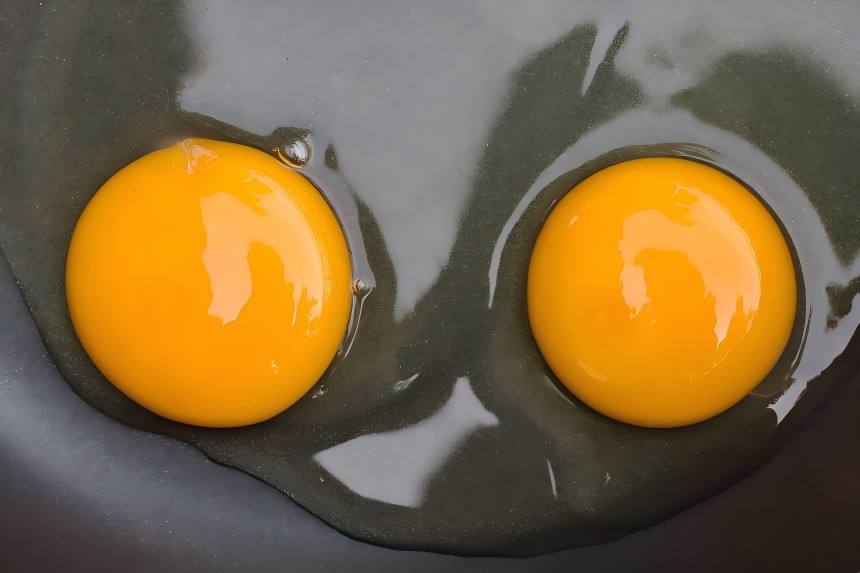
2.3 Bacteriostatic and bactericidal effects
In recent years, the application of traditional Chinese medicine and its polysaccharides and other ingredients in the prevention and treatment of viral diseases has attracted attention [23]. Lin Mingzhu et al. [24] conducted an inhibition test of ginkgo leaf extract on 10-day-old chicken embryos artificially infected with Newcastle disease virus (NDV), and found that the protection rate of the 0.250 g/mL + NDV group and 0.125 g/mL + NDV group reached 70% and 80%, respectively. Ginkgo leaf extract has a significant inhibitory effect on the proliferation of NDV. Xia Qian et al. [25] studied the effect of ginkgo biloba seed coat polysaccharide (GBEP) on the Newcastle disease virus in chicken embryos and reached a similar conclusion. In addition, ginkgo biloba leaf extract not only has a certain inhibitory effect on the proliferation of NDV, but also has a strong inhibitory effect on some pathogenic bacteria of livestock and poultry [26]. Li Yan et al. added 0.20% ginkgo biloba extract to the daily diet of 1-day-old healthy AA broiler chicks and found that the number of Escherichia coli in the chicks' ceca decreased by 21.99% (P<0.05), and the number of Lactobacillus in the ceca increased by 7.74% [27].
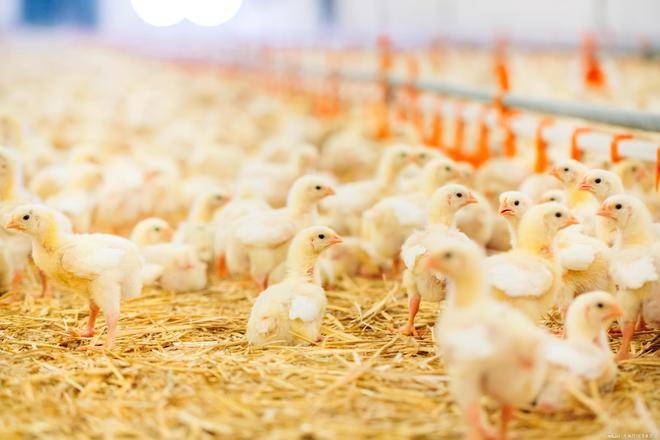
2.4 Improves immunity
The immune organs of poultry mainly include the thymus, spleen, and bursa of Fabricius. An increase in their absolute and relative weights represents an enhancement of the body's cellular and humoral immune functions. Yang Xiaoyan et al. [28] found that adding 1.0% ginkgo biloba extract to the diet of broilers can significantly increase the bursa of Fabricius index, thymus index, and serum albumin and IgG content of broilers. Li Zhonghao et al. [29] also reached a similar conclusion. Huang Qichun et al. [30] found that adding 0.20% ginkgo biloba extract to the diet of broiler chickens significantly increased the spleen index, thymus index and bursa index, and increased the content of IgA, IgG and IgM in bile and intestinal fluid, and the effect was better than that of chlortetracycline. In addition, studies have found that ginkgo biloba polysaccharides have a strong immunostimulatory effect on chicks, and can significantly improve the immune status of chicks infected with Marek's disease in the clinic [31], significantly reduce the incidence and mortality rate, reduce the diarrhea rate of chicks, and increase the survival rate [32].
3 Conclusion
China has abundant ginkgo leaf resources and is the main producer of ginkgo. Ginkgo extract products are widely used in food and cosmetics in addition to being used as medicines at home and abroad. In recent years, it has been gradually introduced into livestock and poultry production as a safe, green plant and its extracts as an alternative to antibiotics. However, the scale of ginkgo leaf processing and production in China is small and scattered, the technology is relatively backward, and the extraction process needs to be improved and optimized. Currently, there is a lack of unified veterinary drug standards for ginkgo leaves, extracts and preparations. The active ingredients such as flavonoids and polysaccharides in ginkgo leaves from different regions and species can vary in different seasons, and the formulation standards need to be further improved. Although the pharmacological effects of ginkgo are still not fully understood, some studies have found that excessive use of ginkgo extracts may cause poisoning or allergic reactions [24]. However, taking advantage of the unique advantages of China's ginkgo resources and vigorously developing the application of ginkgo leaf extract as an alternative to antibiotics in aquaculture has shown good prospects.
References
[ 1] Liang Lixing. The impact of China's ginkgo industry joining the WTO and countermeasures [J]. Forestry Science and Technology Newsletter, 2001, (2): 29-31.
[2] Gai Xiaohong, Liu Suhuang, Ren Tao, et al. Research progress on the chemical composition, preparation types and adverse reactions of ginkgo [J]. Drug Evaluation Research, 2017, 40 (6): 742-751.
[3] Huo J C, Yang J, Ou L L, et al. Health benefits of ginkgo and its application in the food industry [J]. Cereals, Oils and Fats, 2005, (4): 42-47.
[4] Zhang H Z, Liu T J, Dong Y S, et al. Research progress of ginkgo biloba extract [J]. China Brewing, 2009, 202(1): 14-15.
[5] Guo J, Liu Y, Li Y, et al. Protective effect of total ginkgo biloba extract on H2O2-induced myocardial cell injury [J]. Chinese Herbal Medicine, 2008, 39(12): 1864-1867.
[6] Gao H. Pharmacological effects of ginkgo biloba extract [J]. Chinese Practical Medicine, 2010,5(16):168-169.
[7] Maclennan K M, Darlington C L, Smith P F, et al. The CNS effects of Ginkgo biloba extracts and ginkgolide B [J]. Prog Neurobiol, 2002,67(3):235-257.
[8] Jin Juqing, Ding Dongning, Bian Xiaoli, et al. Chemistry of ginkgo biloba polysaccharides and their scavenging of hydroxyl radicals [J]. Journal of Xi'an Medical University, 2000, 21(5): 417-419.
[9] Chen Qun, Liu Tianjiao. Anti-tumor and immunomodulatory effects of ginkgo biloba polysaccharides [J]. Traditional Chinese Medicine Pharmacology and Clinical, 2003, 19(5):18- 19.
[10] Chen Guohua, Deng Fuliang, Liu Jianping, et al. Analysis of amino acid and vitamin content in ginkgo biloba [J]. Journal of Hunan Medical University, 2001, 26(4): 335-336.
[11] Sun Jing, Xu Lihua, Cui Xi, et al. Determination of trace elements in Ginkgo biloba leaves by atomic absorption spectrophotometry [J]. Chinese Pharmacist, 2006, 9(11): 1009-1010.
[12] Chen Qiang, Liang Junsheng. Effects of Ginkgo biloba extract on the production performance and serum biochemical indicators of broilers [J]. Feed Research, 2013, 1: 47-49.
[13] Gan Liping, Yang Weiren, Zhang Chongyu, et al. Biological functions and mechanisms of action of plant extracts [J]. Animal Nutrition Journal, 2015, 9: 2667-2675.
[14] Lu Yanfeng, Zhou Mingxia, Sun Guobo, et al. Effects of different doses of Ligustrum lucidum and Ginkgo biloba leaf extracts on the production performance of Subei grass chickens [J]. Jiangsu Agricultural Sciences, 2014, 42(7): 207-209.
[15] Zhu Yongyi, Li Xiaomeng, Shi Qiang, et al. Effects of fermented ginkgo biloba leaf on growth performance, serum biochemical indicators and antioxidant capacity of yellow-breasted broiler chickens from 1 to 42 days of age [J]. China Feed, 2018, (2): 13-18.
[16] Chen Guiying, Cao Fuliang, Wang Guibin, et al. Effect of ginkgo biloba bio-feed additive on the slaughter performance and meat quality of yellow-breasted broiler chickens [J]. Jiangsu Forestry Science and Technology, 2006, 33(2): 19-22.
[17] Li Yan, Yang Xiaoyan, Lin Yuexin, et al. Effects of Ginkgo biloba extract on the slaughter performance, serum biochemical indicators and thyroid hormone concentration of broilers [J]. China Animal Husbandry Journal, 2007, 43(23): 24-27.
[18] Liu Xuejun, Hao Zhenghong, Yue Fengli, et al. Study on the physical and chemical properties of ginkgo biloba superfine powder [J]. Food Science and Technology, 2009, 34(1): 63-65.
[19] He Yuqin, Qiu Longxin, Lin Biaosheng, et al. Effect of feeding ginkgo biloba superfine powder on egg cholesterol content [J]. Food Industry Science and Technology, 2014, 1: 342-345.
[20] Zhang Ying, Zhang Shiyuan, Ge Jiagen, et al. Effects of Ginkgo biloba synbiotic biological feed on the production performance, egg quality and some blood biochemical indicators of laying hens [J]. Grain and Feed Industry, 2009, 5: 43-45.
[21] Zhu Sujin, Xia Xinshan, Sun Guobo, et al. Effects of three Chinese herbal extracts on egg production performance, egg quality and blood biochemical indicators of laying hens [J]. China Poultry, 2014, 36(23): 62-63.
[22] Zang Sumin, Wang Xuejing. The effect of Ginkgo biloba extract on the growth performance and lipid metabolism of broiler chickens [J]. Feed Expo, 2006, 1: 6-9.
[23] Zhou Xuemeng, Lu Chunni, Qi Wenbao, et al. In vivo anti-avian influenza virus effect of Qingkailing and Shuanghuanglian oral liquid [J]. Traditional Chinese Medicine, 2011, 42( 7) : 1351 -1356.
[24] Lin Mingzhu, Li Yan, Chen Rong, et al. Ginkgo biloba extract inhibits the proliferation of Newcastle disease virus in chickens [J]. Fujian Animal Husbandry and Veterinary Medicine, 2009, 32(2): 6-7.
[25] Xia Qianxian, Cheng Nan, Jiao Jinying, et al. Preparation of ginkgo biloba seed coat polysaccharide and preliminary study of its anti-newcastle disease virus effect [J]. Heilongjiang Animal Husbandry and Veterinary Medicine, 2017, 4: 216-219.
[26] Sheng Jianguo, Huang Dongyu. Discussion on the extraction process of ginkgo biloba leaf and its antibacterial properties [J]. Food Industry Science and Technology, 2005, 26(1): 65-67.
[27] Li Yan, Yang Xiaoyan, Huang Qichun, et al. Effects of ginkgo biloba leaf extract on the production performance, nutrient utilization and intestinal flora of broilers [J]. China Animal Husbandry Journal, 2009, 45(23): 47-49.
[28] Yang Xiaoyan, Lin Yuexin, Li Yan, et al. Effects of Ginkgo biloba extract on the production performance, slaughter performance and immune indicators of broilers [J]. Journal of Fujian Agriculture and Forestry University, 2008, 33(3): 295-298.
[29] Li Zhonghao, Wang Li. The effect of ginkgo biloba extract on the immune performance of broilers [J]. Heilongjiang Animal Husbandry and Veterinary Medicine, 2014, 5: 98-99.
[30] Huang Qichun, Chen Tong, Zheng Xintian, et al. The effect of ginkgo biloba extract on the immune organ index and the content of local body fluid immunoglobulin in the digestive tract of broiler chickens [J]. Journal of Anhui Agricultural University, 2011, 38(6): 892-895.
[31] Yu Jianguo. The effect of ginkgo biloba polysaccharide on the production of tumor necrosis factor α and γ-interferon in chicks [J]. Chinese Journal of Preventive Veterinary Medicine, 2006, 28: 596-597.
[32] Li Yan, Yang Xiaoyan, Lin Yuexin, et al. The effect of substituting ginkgo biloba for antibiotics in the diet of broilers [J]. Journal of Fujian Agriculture and Forestry University, 2006, 35 (4): 31-33.


 English
English French
French Spanish
Spanish Russian
Russian Korean
Korean Japanese
Japanese